A Rapturous Welcome Expected for President Barrow
As the nation expects the return of President Barrow, from his Roundtable Donor Conference, streets are being lined, with chanting supporters, and enthusiastic fans. The pavements are noticeably getting crowded, and cars are speeding past, horns blaring as they head towards the airport.
It seems the call made by the Vice President, for “All Gambians and well-wishers, to come out in good numbers, and welcome his Excellency” is being heeded. It remains to be seen if the Ramadan effect will have any bearing on expected crowd turnout.
The call however, has been met with anger in disdain in some quarters. For some, its reminiscent of the Jammeh days, when students were forced to leave classes and made to stand on the road for hours.
Gambia’s Tax Cuts Fail To Impact Market Prices
The skyrocketing prices of basic commodities is still a major concern amongst most Gambians even though the government has decided to cut taxes on imported goods such as rice, flour and cement among others.
Speaking at a consultation meeting held at the Alliance Franco, the National Assembly Member for Kantora, Honourable Billay G Tunkara said that the government is losing millions on tax reduction without it having any impact on the electorates.
“The government has lost more than D33 Million Dalasi from January to April,” Billay Tunkara said.
“The electorates still cannot feel the impact,” he added.
Honourable Tunkara said he is a member of the National Assembly Select Committee that is given the task to review the tax reduction policy with its impact on prices of basic commodities.
According to experts, the Gambia’s business sector is largely dominated by migrants or settlers since independence from the British Colonial rule.
Meanwhile, there are several calls for the government to engage the youth population on entrepreneurship.
‘Gambia is open for Business’ – Barrow tells investors
State House, Banjul, 24 May 2018 –President Adama Barrow has called on international investors to take advantage of the limitless business and investment opportunities in The Gambia, announcing that the country is ready for business.
Addressing an International Business Forum, as part of the ongoing International Conference for The Gambia in Brussels, the President said that his government has gone far in addressing the inherited financial and economic management challenges that eroded investor confidence and seriously limited private sector investment and foreign direct investment inflow into The Gambia.
The regulatory environment has been reviewed to further enhance the already favorable investment environment that exists in The Gambia. The Public Procurement Act, the Gambia Investment and Export Promotion Agency -GIEPA Act, and the Income and Value Added Tax have been amended.
‘The GIEPA Act and Investment Policy provide adequate investment guarantee to investors. The Gambia is a member of several multilateral organizations that protect and safeguard international investment, such as the Multilateral Investment Guarantee Agency and the International Centre for the Settlement of International Disputes.’’ said President Barrow.
The Gambia leader also informed the gathering that the financial management reforms being spearheaded by his government are paying dividend. He reported that interest rates have started going down, while lending to the private sector is significantly improving. The president attributed these developments to the steps being taken by government to reform the unfavourable laws and reduce some taxes to spur investment.
President Barrow stressed that the private sector is a cardinal ally in his development agenda by emphasizing that his government recognizes the private sector as the engine of growth. In this regard, he said, strategies have been developed and aligned with the NDP to encourage the development of the Private sector through entrepreneurship, trade and industry. ‘’Recently, my government has launched the National Business Council to serve as the platform for continuous engagement with the private sector’’, the president announced.
As an expression of political will, the presidency will assume the chairmanship of the eminent national forum. The Trade Minister, Dr. Isatou Touray officially closed the Business Forum.
On the fringes of the International Business forum, President Barrow met with the President of the European Parliament, Antonio Tajani. They discussed, among other things, Agriculture with focus on value addition, mechanized rice irrigation and agro-processing. The aim is to create jobs for the youth as well as grow the economy.
“I Remembered Deyda Hydara Lying In A Pool Of Blood” Halifa Sallah
The National Assembly Member for Serrekunda, Honourable Halifa Sallah has called on Gambians to learn from the realities of the past to avoid any recurrence.
Hon. Sallah was one of the Guest Speakers at the National Stakeholders Consultation Meeting organised by the Victims’ Center with the support of The UK based Media Legal Defence Initiative (MLDI) and the US based National Endowment for Democracy (NED).
The Serrekunda NAM said Gambians have a duty to gather the lessons of the past to inform the government about what happened, not only to remember but prevent it from happening again.
“I remember the day Deyda Hydara lay dead in a pool of blood,” Halifa Sallah said.
He went further to recalled the trial of six Gambian journalist, Emil Touray, Pape Saine and Sam Sarr among others who were sentenced to Prison for saying the killers of Deyda Hydara should be brought to book.
“My heart sank when I visited them at the prisons saying to myself the people who called for justice are sent to prison while the perpetrators are walking free in the streets,” Hon. Sallah said.
“We have a duty to perform and if we fail history will indict us,” he added.
Madi Jobarteh of TANGO said Civil Society should be very vigilant in promoting freedom of speech which is the foundation of modern democracy. He also elaborated on the rights to freedom of expression and holding the government accountable.
“Without freedom of speech the citizens will be plunge into slavery,” Madi said.
The rights activist called on the Gambia Government to constitute the Freedom of Information Law which is also known as ‘sunshine laws’ that empower citizens to hold the government to account. He called on the Gambia civil society to re-examine and position itself to the right track.
Emil Touray, President of the Gambia Press Union (GPU) expressed happiness that the government has finally decided to honour the ECOWAS Court decision to compensate the families of Deyda Hydara, Chief Ebrima Manneh and Musa Saidykhan.
“Its a step in the right direction,” Emil Touray explained.
Touray went further to called on the government to repeal all the bad media laws in line with the African Charter.
Meanwhile, the family of Chief Ebrima Manneh acknowledged receiving half of the compensation which amounts to $50, 000 Dollars. The ECOWAS Court has ordered the compensation of $100, 000 Dollars to the families of Deyda Hydara, Chief Ebrima Manneh and Musa Saidykhan.
Gambia – EU Donor Conference: Vigilance and Transparency
It has been reported today that 1.45 billion euros was pledged at the donors conference for The Gambia for the next three years. From the communique it is clear that the EU is not the main donor because they are only providing 140 million euros in grants, in addition to the 225 million euros they have already committed.
Do we know how much of that 225 million euros is already disbursed and where and how it is being spent?
While this is a legitimate matter that citizens have a right to know, we must at the same time raise more other questions, issues and concerns!
For example how well structured and prepared is our Government to receive this monies in implementing the NDP? In other words how good and competent are our policies, laws, institutions and personnel to perform knowing where we came from in these past 22 years?
Where you have Yaya Jammeh enablers all over tg civil service coupled with political appointments of the current government itself, how competent and interested are those public officers to ensure that they don’t sabotage or undermine or just seek their self aggrandizement and cause the NDO to fail?
Therefore how well is President Barrow himself actively vigilant and committed to accountability within the system to ensure that public officers perform well?
What ethics and values inform and guide our public institutions and officials – from the president to the Speaker to the Chief Justice as a whole down to all of the officers under them to abide by the rule of law and demonstrate the highest standards of honesty, responsibility and efficiency to deliver the NDP to the highest expectations of our people?
In this regard the role and contribution of citizens and CSOs to hold the government to account is urgent in order to helping them to succeed. How vigilant are citizens to demand information, services and performance?
Thus, while we celebrate the outcome of this donor conference let us remember that this money and the NDP are about the life and death of Gambians! We must be vigilant and active in tracking the Government in how it uses these loans and grants. We must bear in mind that if we fail to make good use of this money then we will not only impoverish ourselves more but we would be also harming future generations who will come to only find a deplorable Gambia and a huge debt to pay.
For that matter let us ask more questions about this donor conference and the nature and scope of monies that are pledged. Basic questions should include:
1. Which governments and organizations are the pledge makers?
2. How much of the 1.45 billion euros constitute loan and grant?
3. How and when will the loans and grants flow to The Gambia Government?
4. What exact tools and processes are put in place to ensure effective monitoring of the resources and implementation of NDP?
For The Gambia Our Homeland
Madi Jobarteh
“I Will Be The People’s Mayoress Despite Being Elected On UDP Ticket” Rohey Lowe
By Arfang M.S. Camara
The newly elected Mayoress of Banjul City Council, Rohey Malick Lowe has stated that in as much as she was elected on the United Democratic Party (UDP) ticket, she will be the mayoress of the people of Banjul.
She added that, Banjul City Council (BCC) will never again be an extended wing of any political party instead it belongs to the people of Banjul irrespective of their political affiliation or ideology.
Rohey Malick Lowe was speaking on Tuesday during her swearing in ceremony together with nine (9) elected councillors in Banjul. The program was held at the Atlantic Hotel in Banjul.
She further said that during her campaign she declared emphasis in her manifesto that election to the office of Mayor is one of a social contract between the candidate and the people of Banjul. After taking a solemn oath, the newly sworn Mayoress assured Banjulians of her intention to contribute towards the advancement of Banjul.
“I will bring back hope where there has been hopelessness and likewise bring back faith where there has been doubt. It is also without doubt that our beloved city requires urgent and frank discussion with regard to the development of Banjul in areas of infrastructure, women and youth empowerment among others.” She said
According to her, such development agenda can only be achieved within the powers laid down in the Local Government Act 2002, noting that she would collaborate with central government to advocate for more autonomy and resources so as to perform effectively as a council.
“Our revenue collection needs to be revisited as we are currently in conflict as to who collects what,” while calling on the support of all the Banjulians particularly the aspirants
She urged Banjulians to make best use of the opportunity to turn Banjul into a prosperous city by embracing the local slogan “Together we change our city for good”
She finally said that historic event making her swearing in will make her start on a good footing by getting ready to develop the Banjul City Council together with the new dispensation where justice, peace and freedom prevails.
Islam Is In Books And Muslims Are In The Grave #2
When Abubakr (radiallahu anhu) became the Caliph of the Muslims, after the death of The Prophet, (peace be upon him) he set off to the market with his wares. He was a clothes merchant before becoming Caliph.
The Sahaba stopped him from proceeding. “Where are you going? If you get busy with your trade, who will take care of the business of ruling?”
“Who will take care of my family?” Abubakr asked innocently.
The Sahaba would not let him go to the market. After a long tussle, they agreed on fixing a stipend for him, from the state coffers. Abubakr would not take more than what a common soldier would earn. So his salary was fixed at a meager amount that hardly sufficed.
Abubakr’s wife managed from that, but it was even less than what her husband used to bring home when he was selling at the market. She desired to taste a sweet dish, at least once. So she reduced a small portion from her daily allowance. It took a long time before that amounted to anything. When she saved enough, a delicious dish was cooked in the house of the Caliph of the Muslims, for once in a very long time.
Abubakr enquired as to how she managed to acquire the money for the food. She responded that she had been saving such amount for such a period, in order that they can have a sweet dish.
Abubakr immediately ordered, that his stipend should be deducted by what his wife was reducing from it. “I never knew we had enough. If you can save from the stipend, whatever you save is excess money that belong to the Muslims.”
Let us look at the life of the leader of the Muslims at that time, and compare it with our leaders today. The lifestyles they live, the fat salaries they pay themselves, is totally contrary to our pious predecessors. Thus we cry, that Islam is in books, and Muslims are in the grave.
3 Teenagers Under Police Net Over A 7 Million CFA Theft
The Anti Crime Unit (ACU) of the Kairaba Police Station led by Chief Superintendent Gorgie L Mboob have arrested three teenage boys involved in stealing CFA 7. 5 Million, $1, 100 Dollars and other valuables from a shop in Bakoteh.
The alleged culprits are Omar Mbye 18 from Latri Kunda, Kebba Gaye 19 and Modou Nyahateh 20 a year old respectively from Mbayen Village in the Central River Region CRR. They allegedly used car jags to break doors and windows of their victims.
There is another arrest of two individuals, Ousman Mballow and Sulayman Trawalley known as ‘Gun Man’ who exchanged cannabis for a motorbike.
It is the second biggest arrest by the police after the arrest of 51 people at the Serrekunda Police Station in 2018.
The Police Spokesperson, Superintendent David Kujabi in his press briefing described the arrest of the teenagers as mind blowing and very sad, saying its not their first time as they have once stolen money and went through the back way to Niger in 2016.
He added that the teens have been breaking cars, stores and homes selling valuables to Fishermen at Tanji and at the border at Karang.
“The question every well meaning Gambian should asked is why so many of our young people are involve in crimes,” Spokesperson Kujabi said.
“We do not want to breed a society of criminals but a responsible society,” he added.
Superintendent Kujabi has said the culprits would be taken to court before 72 hours elapsed.
EU mobilises international support for The Gambia
Brussels, 22 May 2018
A total of €1.45 billion were mobilised by the International Conference for The Gambia, co-chaired by The Gambia and the European Union.
The reinforced political and financial support by the international community will assist The Gambia in continuing its democratic transition, building on strong democratic institutions, the respect of human rights and the rule of law, and sustainable and shared economic growth.
High Representative/Vice-President Federica Mogherini, who co-chaired the conference together with the President of The Gambia, Adama Barrow, in Brussels today, said: “The Gambia is showing to the world that freedom and democracy are about real people and real lives. After the presidential election in 2016, neighbours and the international community stood with the Gambian people. We stood on the side of freedom and democracy. Two years on, we continue to stand by your side. Today the EU is proud to announce €140 million to invest in opportunities for the Gambian people and further strengthen democracy”.
Commissioner for International Cooperation and Development, Neven Mimica, added: “When people of a country decide to overturn a two-decades long dictatorship, this is a choice to commend. This is what happened in The Gambia one year and a half ago. When new authorities commit to profoundly reform the country and put it on the path of democracy and development, the international community has to answer their call. This is what happened today in Brussels. Out of the €1.45 billion that were pledged today, the EU has committed additional funding of €140 million until 2020, which adds to the €225 million mobilised since the beginning of the transition in 2017. Because nothing is more important today than showing to the people of The Gambia that democracy brings quick and tangible dividends.”
Key outcomes of the conference are:
- Reinforced political support to The Gambia: A joint communiqué by the co-chairs was issued, reaffirming support and solidarity in assisting the transition from a dictatorship to a fully-fledged democracy.
- Increased financial assistance for development: The €1.45 billion pledged will help cover needs identified for donor support to The Gambia’s National Development Plan.
The International Conference for The Gambia will be followed by a Business Forum tomorrow, which will bring together interested European, regional and Gambian business representatives for exchanges on sector-specific strategies and projects during panel discussions on Energy & Infrastructure, Agricultural Value Chains, and Tourism.
Background
Following the end of 22 years of authoritarian rule by former President Yahya Jammeh with the change of government in January 2017, the EU and The Gambia have opened a new chapter in their relations. An intense political dialogue is ongoing at all levels, and the EU is actively supporting the democratic transition in co-ordination with other international partners of The Gambia. Areas of co-operation include e.g. security, development for sustainable growth, transitional justice, economic partnership, trade, fisheries and migration.
Donors Pledge EUR 1.45 Billion For Gambia For The Next 3 Years
A gathering to renew international support for the new Gambia
- Today, 22 May 2018, the Republic of The Gambia, represented by President Adama Barrow, and the European Union, represented by Federica Mogherini, High Representative/Vice President of the European Commission, and Neven Mimica, Member of the European Commission in charge of International Cooperation and Development, have convened the International Conference for The Gambia. The Conference was held at ministerial level in the headquarters of the European Commission in Brussels with the participation of delegations from 43 countries and 10 International organisations. The list of delegations is attached.
-
In January 2017, the world witnessed the first democratic change of leadership in The Gambia since independence. This ended 22 years of dictatorship, proving to the international community that peacefully transition is possible. Such a change would not have been possible but for the resolve of the people of The Gambia and the strong support of the international community, with ECOWAS playing a significant role, in particular with the setting-up of ECOMIG standby force, financially supported by the EU.
-
During the conference, the Government of The Gambia confirmed its commitment to transforming the country into a new Gambia: a country with strong democratic institutions that respects and protects human rights, and enjoys economic growth and sustainable development. Laws establishing a Human Rights Commission, a Constitutional Reform Commission and a Truth, Reconciliation and Reparations Commission have been passed; a thorough security sector reform is being prepared as well. The new government, true to its commitments, took decisive steps including in reaffirming its membership of the ICC.
-
The conference provided an excellent opportunity to the international community to express its support, both at political level and in financial terms, to The Gambia that is undergoing a historic democratic transition. The commitment of the Gambian government to transform the country to a “new Gambia” and a beacon of democracy was saluted by all. Today’s gathering also reconfirmed the important role of joint efforts by domestic, regional and international actors in supporting the country in its journey towards democracy, stability and sustainable development. Together with other international organisations, the EU has stood by the side of The Gambia through political and financial support and remains committed to continuing this support.
-
The current government has inherited an unsustainable debt situation, which severely limits the funding of the Country’s National Development Plan, the launching of necessary reform initiatives and the swift achievement of tangible improvements in the living conditions of the population. This situation implies the need for raising grants or highly concessional borrowing to contribute to the funding of the National Development Plan while reducing debt vulnerabilities. The Conference confirmed that it is crucial for the country to have the necessary means to further pursue reforms and investments in services and infrastructures that will allow tangible improvements, in particular concerning job creation.
The pledge announced
- The international community stated their support to The Gambia’s National Development Plan (NDP) for the period 2018-2021, an ambitious blueprint for reforms and development approved by the Government in January 2018. Numerous important pledges were announced for the NDP’s implementation. The total amount of pledges is: EUR 1.45 billion, for the next 3 years of which the EU is contributing with an announcement of EUR 140 million in grants, which comes on top of the EUR 225 million already committed.
The Gambia’s strategic vision: The National Development Plan
- The EU fully supports the 8 priorities highlighted in the National Development Plan that aim to ensure sustainable and inclusive growth in the country. Further actions will focus on supporting the government priorities notably in the sectors of governance through the support of democratic reforms; in agriculture, promoting job creation for the youth and, in energy sector, granting access to renewable and sustainable energy for the population.
Follow-up and coordination
- As the Conference has been instrumental in mobilising renewed political and important financial support to The Gambia, it is crucial that this momentum be maintained and translated in terms of action on the ground. A close coordination mechanism between the national administration and partners will be maintained in that regard.
Motion of gratitude
- Finally, the Government of The Gambia and the European Union would like to extend our gratitude to the participants of this conference for their important political and financial contribution in support of the democratic and economic transition in The Gambia.
Brussels, 22 May 2018
Three Police Commissioners Promoted To The Rank Of Assistant IGP
By David Kujabi
(Police PRO)
History was made on May 21, 2018 at the Gambia Police Headquarters when three Commissioners were promoted to the rank of Assistant Inspector General of Police (AIG).
The three who are the first to ever put on the AIG rank were decorated at a ceremony graced by Mr. Bully Dibba Permanent Secretary Ministry of Interior, Inspector General of Police and Senior Police officers.
The recepients include CP Demba Sowe, CP Ebrima Bah and CP Abdoulie Sanyang.
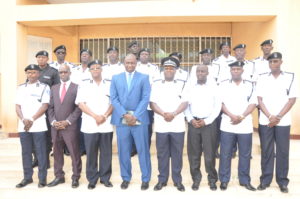
The ceremony also marked the decoration of other personnel to senior ranks; eight to the Assistant Superintendent of Police (ASP), one to the rank of Chief Superintendent of Police (SP) another to the rank of Assistant Commissioner, and five to the rank of Commissioner.
In delivering his remarks, PS Dibba congratulated the newly promoted personnel and encouraged them to continue to maintain good leadership practice. He urged them to be courageous in their dealings and be ready to take full responsibility of their actions.
IGP Kinteh on his part told the newly decorated that the promotion is a new challenge and an added responsibility to their careers in devotion to the rule of Law.
“Considering the obligations, roles and responsibilities, new structure and reforms of the Gambia Police Force in ensuring and adherence to the rule of Law, it is no doubt that this promotion will strengthen the efforts towards a competent Police Force that would provide better services to the Gambian citizens” he said.
IGP Kinteh further added that, the Senior Officers being decorated are officers worthy of emulation by all other personnel as they are with the requisite skills and knowledge to strive and make the Force to grow.
He however cautioned that promotion is not for ornamentation but rather a great challenge particularly for the AIG ranks as it has been vacant for many years.
“This promotion is based on our belief in your commitment to service delivery in the overall quest for quality and more harmonious relationship with society for the interest of the nation,” he added.
Other speakers included Alhagie Mamour Jobe Deputy Inspector General of Police who did the welcome remarks and ASP Ebou Colley who delivered the vote of thanks.
MAYOR BENSOUDA’S INAUGURATION SPEECH
Bismillah Rahman Raheem
Hon. Ministers, and in particular the Hon. Minister of Lands and Regional Government
Hon. Secretary General
Excellences and members of the diplomatic corps
Permanent Secretaries and heads of institutions
Councilors elect and Alkalolu
Distinguished guests,
I thank you all for gracing this occasion with your presence.
It has been a tough one year but we have seen it through to this moment by Allah’s grace. Alhamdulilah Rabilalamin.
This moment would not have been possible but for the hard work of some wonderful people. It would be impossible to name them all.
I would like to express my gratitude to all of them.
To my family and my friends, I thank you for your unwavering confidence in me; for your support and commitment.
I thank the United Democratic Party (UDP) for selecting me as their flagbearer and thereafter rallying behind me to this moment. In particular, I recognize my UDP campaign team for running a clean, structured and focused campaign, all chairmen and women and Yaiyi Compins.
I say a big thank you to all my well-wishers and supporters and all the residents of KM including all the Councilors elect, with whom I have the honour of beginning a new journey today.
Today marks the beginning of a new struggle. The struggle to deliver the dream for the development of a green and prosperous Kanifing Municipality.
After a hard and competitive election campaign, the expectations of the people for a better standard of living are enormous.
During our campaign, we visited thousands of homes, communities, markets and public spaces. I witnessed first-hand the poverty that plagues our communities and the hazardous and dilapidated conditions in which many people live.
From the Bakoteh dump site, to the garbage hills of Kotu Quarry. From the slums of Chube town and the eroded roads of Bundung, to the swamps of Talinding and Ebotown and Abuko.
Unemployment is rife, with limited or no access to basic services, exposure to fatal health hazards, and very poor or non-existent infrastructure.
I have seen and shared the reality of the majority of the residents of the KM.
These experiences have been very sobering. These experiences have strengthened my determination and resolve and served as a reminder of the reason why I decided to enter politics.
The residents of Kanifing Municipality deserve much better from their council. The people deserve to have a municipal council that is committed to addressing their basic needs. That is what councils are for in all successful countries.
MY ONE AND ONLY MOTIVATION IS TO GIVE THE NEXT 4 YEARS OF MY LIFE TO THE CITIZENS OF KANIFING.
While I cannot promise to turn the Kanifing Municipality into the perfect metropolis within this time. I can promise you the following:
- I shall turn the Council into a service oriented institution for all residents of KMC.
- This Institution and the office of the Lord Mayor shall no longer be a political bureau. Instead this office shall be a place of hard work where professionals come to serve the municipality and deliver much needed services to its people.
- I shall wake up every single day and give all my effort, determination and commitment towards this end.
The focus of the KMC under my direction as Chairman of the council will be to develop a sustainable municipality, that will spur growth, create opportunities and increase the standard of living of its residents in a responsible manner.
I am sure you are all familiar with my 5 point plan. It is an ambitious yet realistic plan that will require the collective support of the Council, the community and the Central Government.
In these three years and nine months we shall ensure that the municipality is well equipped with qualified, dedicated and a professional workforce. As a priority we will commence a human resource and capacity audit of all the Council’s administration, management and support staff to determine the capacity gaps to be filled to deliver on its promise.
We shall focus on the development of Council bye-laws and rebuild the audit, compliance and enforcement capacity of the Council.
Fundamentally, and key to my plan will be a substantial assessment of all revenue generating sectors and the adequacy of the current budget, collection mechanisms and financial accounting tools and procedures to drive towards fulfilling my 1 Billion Dalasi revenue target.
We shall focus on strengthening and ensuring that revenue is collected and accounted for in a transparent manner, thereby reducing leakages and increasing confidence of the residents in the Council.
As we embark on this struggle, we shall count on you, the community of Kanifing to work with us and support us, to criticize and question us, so that we can achieve this common dream of a KMC that works for each and every one of us.
Distinguished guests, Ladies and gentlemen.
I would like to take the opportunity to thank the outgoing Interim Chairman, Mr Bakary Jammeh and his management team for achieving so much in only 3 months. I have followed their progress keenly. During this short time in office they have been able to move the Council’s bank balance from an overdraft GMD5 million to over GMD8m in the bank. The interim management team paid up 80% of KMC’s contribution to substantial infrastructure projects, and reduced the Municipalities debt substantially.
Mr Jammeh and team, thank you for your commitment, dedication and service to the Municipality. We will build on the work that you started.
I would also like to thank the KMC staff for their hard work in making sure that today’s event is a success.
I would like to remind you that public service requires commitment and sacrifice. We must rededicate ourselves to the residents of this municipality; to provide for its needs and create a more conducive environment for living.
I look forward to working with all those who will work with me on that basis.
Honourable Minister of Local Government and Regional Administration. I look forward to working with your Ministry to build the capacity of the KMC into an autonomous municipality that is able to deliver effective services to its residents.
A Council that eases the burden of central government, and, is an effective partner for development.
Together, we will all work towards a better KMC.
Thank you. Ramadan Mubarak. Wa Salam.
‘Gambia Gov’t is not Owning Up To Their Responsibility’
By Arfang M.S. Camara
The chairman of Gambia Center for Victims of Human Rights Violations (GCVHRV), Sheriff Kijera, has said that the government of the Gambia is not owning up to their responsibility, adding that the Gambia cannot support its victims by depending entirely on foreign aid.
Kinteh said the government should pick up their responsibility by setting up the Truth and Reconciliation Commission (TRRC) commissioners and not leave it in the hands of UNDP or other international organisations to provide funding for the selection of commissioner for the TRRC.
Mr. Kijera was speaking Saturday during a policy dialogue series organised by Tango on the topic: restoring the human rights and dignity of victims: Empowering victims and survivors within the TRRC.
Kijera in his words added that “denomination of commissioners in the TRRC should be the responsibility of government. What is D1 million? Whatever process the government is in, they always out holding a basket begging for funds throughout the whole world.
” That is embarrassing for our country, we have been reduced to beggars and I think we need to change that status.” He said.
He mentioned that the Gambia cannot depend on foreign aid to provide justice for its people, adding that they should setup the pace so that others can come and help, saying that it should be part of their budget.
Mr. Kijera went on to ask questions about the D80 million budget to the Ministry of Justice, D900 million budget for the Office of The President, adding that people need to look at these things as far as allocation of budgets are concern
“The youths constitute 60% of the Gambian population and the youth budget which goes with sports amounted to D68 million. What can this budget do for the youth of this country, this will rather make them engage in dangerous trips or “Back-way”. He said
He called on the Gambia government to focus on the youth by allocating more budget for them, saying that all of these are human rights violation. He added that the government is not owning up to their responsibility and that alone is human rights violation.
According to him, the government depends on tax payer’s money and that money should be utilised effectively and wisely to educate, develop and create employment opportunities for citizens.
He added that victims have been left alone for a long time now, noting that the change in the country came from the victims themselves because each and every Gambian is a victim be it directly or indirectly
He added that being self-critical does not mean one is an opposition, noting that they have to criticize their own development agendas and programs so as to make things go right. He said that part of development one must accept to be criticized so that effective and meaningful development can take place.
Badou Jack Fought An Away Draw
In what was his toughest defense of the WBC light heavyweight title, Adonis Stevenson narrowly escaped defeat at the hands of the challenger, Badou Jack. In Stevenson’s own backyard, Jack put him through one of his hardest challenges to date in a twelve round fight that will be remembered for years ahead.
Round one was a friendly encounter, each fighter sizing the other. Stevenson looked strong in rounds two and three and he threw more punches.
Jack took over in round four as he ripped through the Superman’s defense. Stevenson became visibly tired as the younger Jack kept on a relentless pummeling, fighting on the inside, as well as controlling the jab.
In the 10th round, Jack took a body shot that had him crumbled and kept him inactive for much of the round. He threw everything in the 12th round, knocking Stevenson all over the ring. The fight went to the scorecard, which had two judges ruling 114 each. One judge had it in favour of Jack.
According to most pundits, the fight was Jack’s to win. If he’d have boxed hard in the early rounds, he’d have won on points, possibly force a knockout on the aging champ.
It remains to be seen if there’ll be a rematch. James Degale has said he’s willing to fight Jack again, following their fight which also ended in a draw.
Islam Is In books And Muslims Are In the Grave #1
Islam Is In the Books and Muslims Are In the Grave #1
Lack of knowledge in basic history is making a lot of people doubt that Islam has the solution to the world’s problems. People wrongly assume, that those living during the time of the Prophet (peace be upon him) and his companions, weren’t sophisticated enough, so the laws which governed them cannot hold sway now. This is not true.
Any study into the lives of our pious predecessors reveal a people we cannot possibly reach, in piety, valor, bravery, in knowledge and in purity of character. We bring you the first of stories to reaffirm this fact. In this story, we learn that anyone with the character of Abubakr will not be corrupt, even if he were given the keys to the treasures of the world.
Abu bakr (radhiallaho anho) had a friend who used to give him a portion of his daily income. Once, he brought him some food, and Abubakr (radhiallaho anho) took a morsel out of it. Then the slave remarked. ”You always enquired about the source of what I bring to you, but today you have not done so.
He replied. ”I was feeling so hungry that I failed to do that. Tell me now, how did you come with this food?”
The friend said “Before i embraced Islam, I practiced sooth saying. During those I came across some people for who i practiced some of my charms. They promised to pay me later on. I happened to pass by those people today, while they were engaged in a marriage ceremony, and they gave me this food.”
Abubakr exclaimed “Ah, you would have surely killed me! ”Then he tried to vomit the morsel he had swallowed, but could not do so, as his stomach had been quite empty. Somebody suggested to him to take water to his fill and try to vomit. He sent for a goblet of water and kept taking water, forcing it out, till the morsel was vomited.
Somebody remarked. ”May Allah have mercy on you. You put yourself to such troubles for a single morsel! To this he replied, ”I would have thrust it out even if i had to lose my life. I have heard the prophet (sallallaho allaihi wasallam) saying. “The flesh nourished of haram food, is destined for the fire of hell. I, therefore, made haste to vomit this morsel, lest any portion of my body should receive nourishment from it.”
Allahu Akbarr! Can a man holding such a belief, fearful of the repercussion of haram, misuse state funds? So we say that if our public officials were like Abubakr, we’ll all be much better off. Indeed it is true, that Islam is in the books, and Muslims are in the grave.
PS* Soothsaying is forbidden in Islam. The one who does it as well as the one who solicits it are both accursed. Only Allah knows the future.
Gambia, Your Son, Badou Jack Fights Tonight
The much hyped fight between the hard hitting Canadian, and The Gambia’s own, our Olympian Badou Jack is tonight. At the weigh in yesterday, in the Superman’s own backyard of Toronto, he promised victory by knockout.
“I’m ready for anything he brings. I’m going to win.”
Stevenson has the home advantage, and he’s also the more experienced of the two, especially in the light heavyweight division. This is his ninth defense of the title, which has seen him knockout guys like Dawson and Bellew.

This is Jack’s second fight at the weight, having made an easy meal of Britain’s Cleverly in his first fight at this category. When the two traded words at the weigh in, Jack promised to rip the belt from the reigning champ. “Tomorrow, we’ll have a new WBC champ in sha Allah.”
The fight will be aired on Skysports from 2:30 am. Gambia, pray for your son.


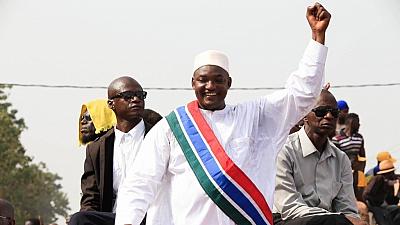

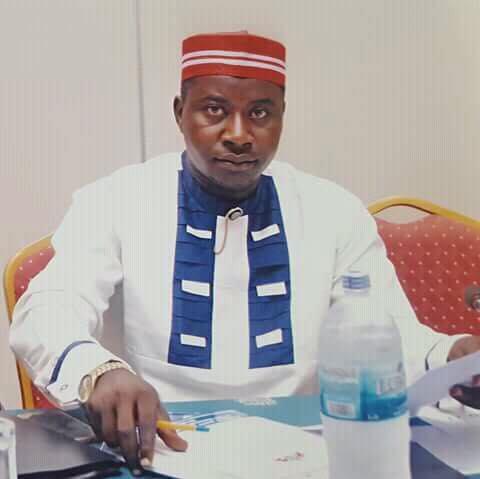
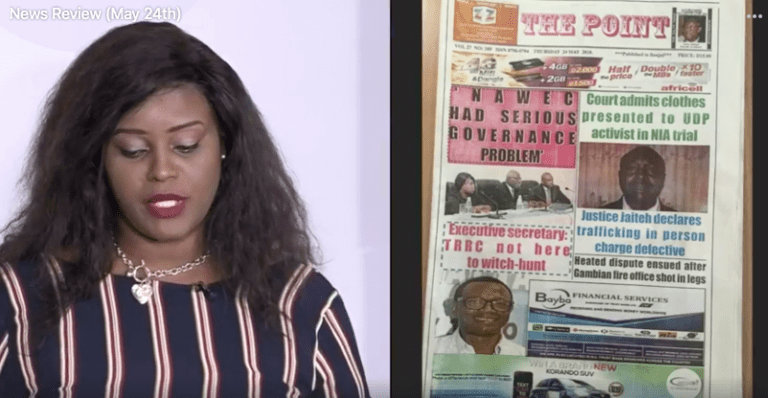

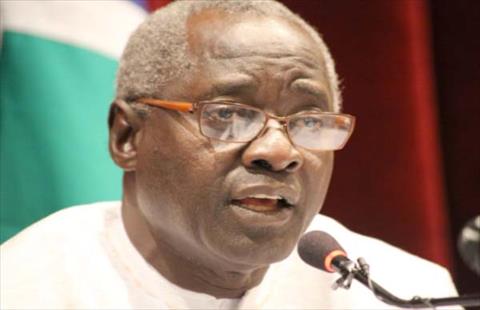


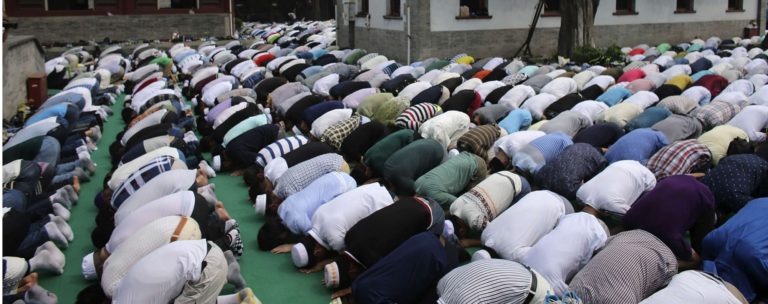




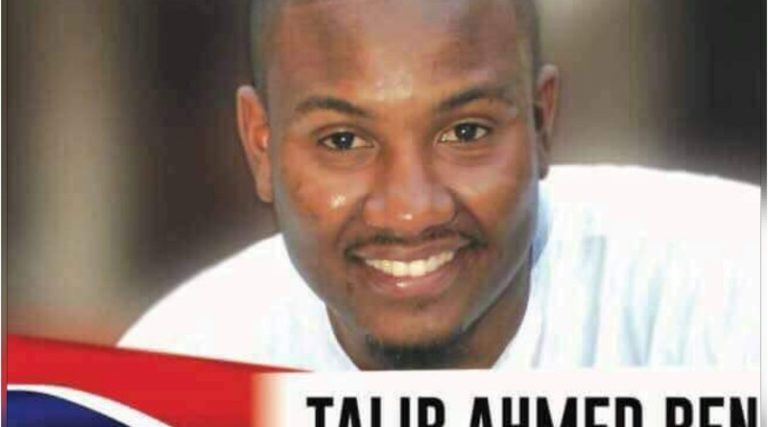



Gambia’s New Disinherited Class
It has been two years since I last visited the old country — The Gambia. In both 2015 and 2016, respectively, I visited my grandparents in Tujereng, Kombo South, West Coast Region. I have uncles, aunts, cousins, friends – who still live there; my mom owns property there, and know many of the families in the village. My mom’s family moved there from Ngumen village, Senegal, about 10 miles or some such from Baddibou, by the way of Lion House, Serekunda – many decades ago. Anyway, I had fond memories of Tujereng, I spent a summer holiday there after my 9th grade exams – and it was probably the best time of my life; it was always an interesting place, growing up, we would go and visit my maternal grandparents and the extended family once a month; we would also go to my mom’s big orchard to get some oranges, mangoes, among other fruits. In many ways, Tujereng, like Churchill’s Town and Banjul, is also home.
During my most recent visit to Tujereng, I was hit with the latest developments — brimming with new buildings, cars, people. It was a really fascinating sight, totally different from the Tujereng I left when I left for the States. Also, I observed a very disturbing trend among the landed villagers, those who inherited land from their parents and whatnot. I intentionally use the word disturbing, because, years ago, the land they used for farming is now mostly real estate, they have pretty much, especially the land around the coast — from Batakunku to the Sanyang edge — cashed out on all of the land, and leaving little or nothing for their offsprings to farm on or build their own houses. Most of the land is now a 30x30m, 25x25m, 15x15m prospect.
This new generation of Tujereng kids, unlike their parents and grandparents, are most likely going to grow up without agricultural land or no land at all, because their parents have decided to make dough out of their ancestral lands; lands that were the lynchpin of this wonderful community. This new generation is what I’ve dubbed the “disinherited class” – who are going to grow up, seeing bungalows, story buildings, and beautiful self-containers, occupying their ancestral lands. This new class — the disinherited — are going to grow up sans land to fall back on for survival when times are hard, like their great-grandparents, grandparents, and their fathers did before them. The family land used to be the safety net for many of these families; and in a generation, this would be, without a doubt, no more, for the the safety net would bottom out. I think it is also safe to say this new shift would also spell the end of subsistence farming in Tujereng.
The new Tujereng
This, notwithstanding, I think, is going to create a great schism in years to come when the “disinherited class” become landless, because they have no home to go back to, because the family compound is the only thing that Daddy left behind, which is going to be rationed among 20 other siblings, because most of the money Daddy gotten from the real estate sales, were not saved up for the children; some spent it on new brides, some on material things; some even renovated their “Banku-Bungho” into very fine “self-containers”, sprawling the family compound with over a dozen children, all of whom, are also going to fall under this “disinherited class”. This is not a pejorative piece – nor does it mean that all the landed folks in Tujereng are cashing out on their ancestral land – because, I know and had conversations with some, that have planned out, saved up some of the money; some have already even shared some of the land among their children. Also, some of them have also sold family land to send some of their kids on the backway journey – with the hopes of them sending remittances. With the uncertainty surrounding the backway migrants in Europe, what is going to happen if these kids are returned back to The Gambia?
A decade or two from now, the destruction of the safety net — land — would be absolutely complete. Tujereng, like most of the coastal villages, now towns, on the southwest coast of The Gambia – would have to rethink how they are going to tackle this new conundrum, because, the Tujereng of old, is on its way to abeyance. I hope the leaders of the village are planning wisely, because, if not, this would have devastating, cascading ramifications in a decade or two. Is the government of The Gambia making any forecasting, projections, any ideas on how this demographic shift in villages like Tujereng, Brufut, etc., are going to affect this new “disinherited” class? How is this going to affect the family dynamic in a village like Tujereng, where, just a decade ago, even the poor used to be offered a piece of land to live and farm on during the rainy season, when the entire land is now ripe for real estate developers, dripping with “Semester-Dollars’, and the nouveau riche? What does all of this foretell?
There is no need for theorizing. The answers are knowable.
Saul Njie
5.25.2018